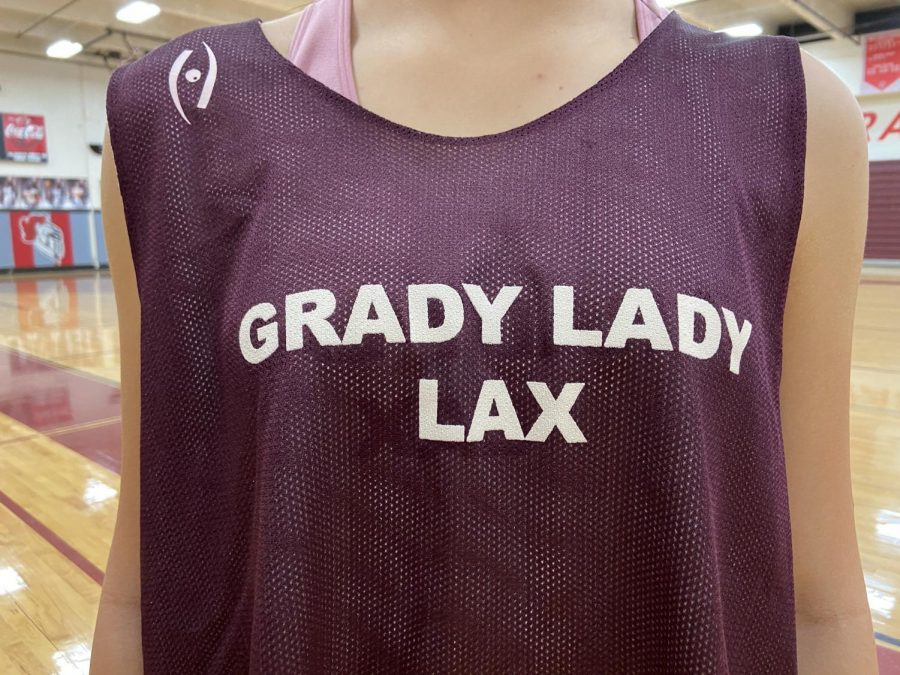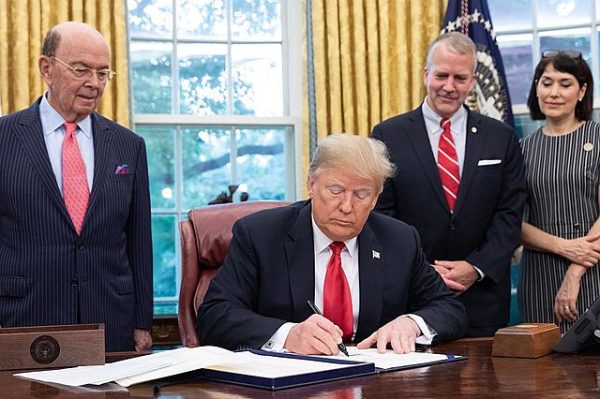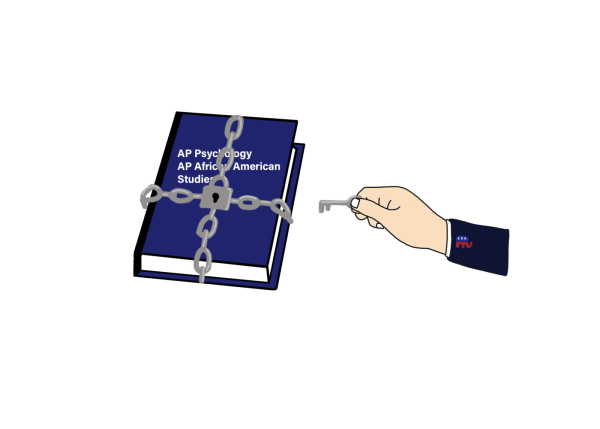“Lady” labels on sports teams are sexist, must be removed
Grady should unite all sports teams under the sole mascot, the Knights, and eliminate “Lady” from team titles.
February 13, 2020
Team mascots are a tradition dating back to the 1900s, meant to bolster team spirit and unify fans. At Grady, that enthusiasm is tainted by one small word: “Lady.” Our girl’s teams are not “the Knights”; they’re “the Lady Knights.” They do not play on the Grady lacrosse team; they play on the Grady lady lacrosse team. Instead of being unified by our mascot, we are divided by archaic gender labels.
In 2017, Grady changed its mascot from the “Grey Knights” to the “Knights,” to remove its racist connotation of Confederate soldiers, who wore gray uniforms. A new change is now needed to remove the sexism behind “Lady” teams. Grady should unite all sports teams under the sole mascot, the Knights, and eliminate “Lady” from team titles.
In 2014, the University of Delaware’s student newspaper, The Review, announced that it would no longer use the term “Lady Hens” when writing about the university’s women’s sports teams. This change came after a letter to the editor was written on how “the term Lady Hens is inherently sexist.” The editors agreed with this statement, also finding the term “Lady Hens” redundant, given that hens are inherently female.
One year prior, Washburn University’s President Dr. Jerry Farley united the entire athletic department as “Ichabods,” instead of having “Lady Blues.”
Just one year ago, Tarleton State University discontinued the use of “TexAnns” for their girls teams and adopted the “Texans” as the universal name for all teams. The change came after a year of researching, contacting alumni and drafting a bill. The bill passed unanimously. Originally, the “TexAnns” name was created for Tarleton female athletes to have a distinct identifier of their own. It wasn’t meant to be derogatory, but give women an identity in a time when they were often denied one, according to women’s basketball head coach Misty Wilson. But as times changed, so did the perception of the name, so Tarleton removed it.
In 2015, The University of Tennessee removed the prefix “Lady” from all women’s sports teams except women’s basketball and adopted Tennessee’s ‘’Power T’’ logo. The women’s basketball team kept the name “Lady Vols” as a tribute to their former head coach Pat Summitt, who led Tennessee to eight national titles. However, University President Joe DiPietro received a petition with 16,000 signatures, 35 letters from alumni athletes and witnessed many rallies at games and Board of Trustees meetings, all in opposition of the name change. The people who opposed the name change argued that the name change stripped Tennessee of its history and damaged a decades long tradition. Despite this opposition, athletic director Dave Hart said they were moving on and developing the “One Tennessee” mantra to move forward as one.
It all comes down to what you choose to value more: a name that reminds some people of former victories, or the degree to which a person is valued. Using the term “Lady” in front of a mascot establishes the men’s sport as the norm and makes the women’s sport not as important.
Just because something was once used as a term of empowerment, does not mean it has that same effect today. As The Review’s letter to the editor stated, it is inherently sexist. Establishing a women’s sports team as the “Lady” version of the mascot delegitimizes the team. Incorporating the word “Lady” into a mascot’s name makes women themselves seem like part of the mascot, like a character you can mock and make fun of. Women should be treated equally. It all comes down to respect.
Traditions can fade, and they should when they’re no longer in good taste. Female athletes are just athletes. Grady, remove “Lady” from girls sports teams and be proud of joining the 21st century.















Chanda Dowell • Sep 21, 2022 at 9:25 pm
I completely agree with the thought process in this article. We do not refer to male teams as the “gentlemen” version so qualifying our female teams with a word grounded in politeness in this context is sexist. It suggests females can play, but should do so in a “lady-like” manner. We don’t use words to suggest the same expectation for our male athletes. These forms of unconscious bias are tough to identify and understand, but are still damaging and restrictive. We are 50 years into Title IX and need to continue moving forward so all females can experience full and equal enjoyment of activities and facilities. Being called a “lady” is not inherently sexist–words matter and context matters.
Linda Poland • Mar 25, 2022 at 3:27 pm
I personally am proud to be a lady and tougher than most. Get over it.